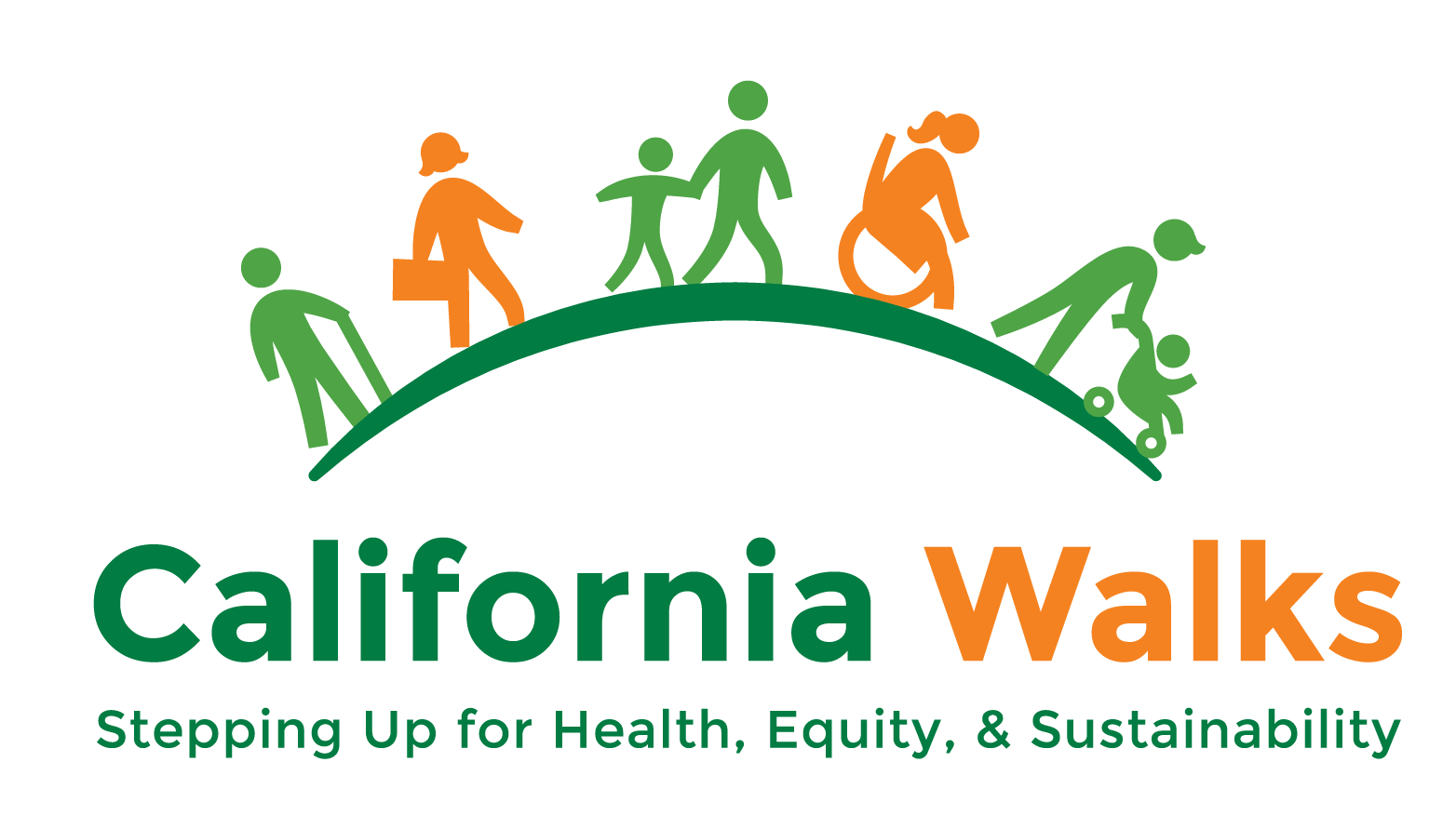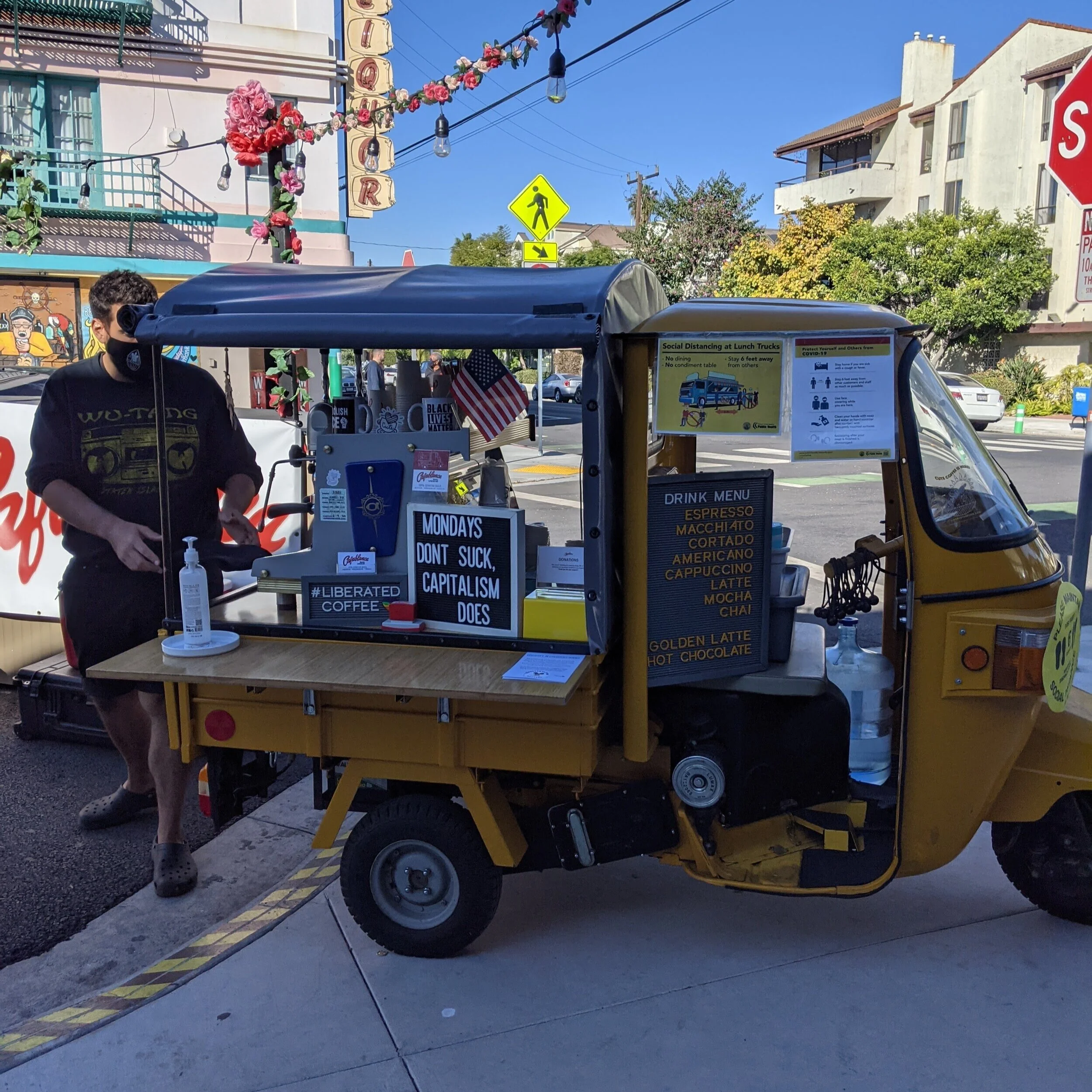Slow Streets Community-Centered Recommendations
Slow Streets programs have grown in popularity as a response to the pandemic. It’s simple, more car-free space helps us keep a 6-foot distance as we walk, bike, and roll in our own communities. Truly, it sounds like an active transportation advocate’s dream! Prioritize street space for people movement! Give us space on public streets to be active and build community! These are all things we’ve been shouting and fighting for for years, so why does it feel like the program is still missing the mark?
There are two different types of Slow Streets programs; the Al Fresco Dining program, which creates an outdoor dining space that extends into the sidewalk, street and parking spaces and the Lane Closures program which partially or fully closes travel lane(s) in neighborhood streets for people to walk, bike, roll with 6-feet social distancing. Part of the issue is that cities and counties are prioritizing these funds for Al Fresco Dining programs, which are essentially helping businesses stay afloat. This isn’t necessarily a bad thing, especially if we’re talking about locally owned businesses that employ local residents (however, this isn’t always the case), but it also feels overly focused on consumption and the need to have disposable income during a global pandemic in order to reap the benefits of the program. Consequently, many cities and counties are neglecting to provide their residents with dedicated space for them to safely be active in their communities. During a time when a majority of Californians are being encouraged to stay home, unless it’s for essential activities, people need safe places to walk, bike, skate, scoot, de-stress, and get some fresh air.
At this point, the question must be asked, who is benefiting from the Slow Streets programs and who is continuously being left out? Are low-income and communities of color who tend to walk, bike, roll and ride transit out of necessity and already lack critical infrastructure to safely move in their neighborhoods being awarded these funds, or are we continuing to prioritize higher-income communities who walk and bike for recreation and want to have safer outdoor spaces to dine? Which businesses and their employees are being supported the most? Small mom and pop shops in low-income neighborhoods or bustling bigger businesses in higher-income downtown areas? The glaring irony is that the service, undocumented, and informal workers that have been deemed “essential” during a global pandemic, are still being left out of programs that are meant to alleviate pandemic stress and quarantine fatigue. Without an intentional effort to prioritize the needs of people and communities who are risking their lives to keep our societies running, we’ll continue to repeat the same mistakes that lead to disinvestments in low-income, Black, Indigenous, Communities of Color that are felt for years to come. If we really want to use the Slow Streets program to relieve pandemic stress, we need to make sure funding is being prioritized where essential workers live and they’re being protected while working at businesses benefiting from the Al Fresco program.
As we continue to collectively reimagine public space and public safety, we would like to offer our Slow Streets Community-Centered Recommendations, an evolving recommendations guide for cities, counties, and communities working to bring Slow Streets to their community. For once, cities and counties are now funding temporary outdoor activation where we were once told that we couldn't close streets to drivers or parking because businesses would suffer. Now that the impossible is possible, we need to hold our cities and counties accountable for meeting the needs of the people first.
Donwload the PDF of the Slow Street Community Centered Recommendations here.



